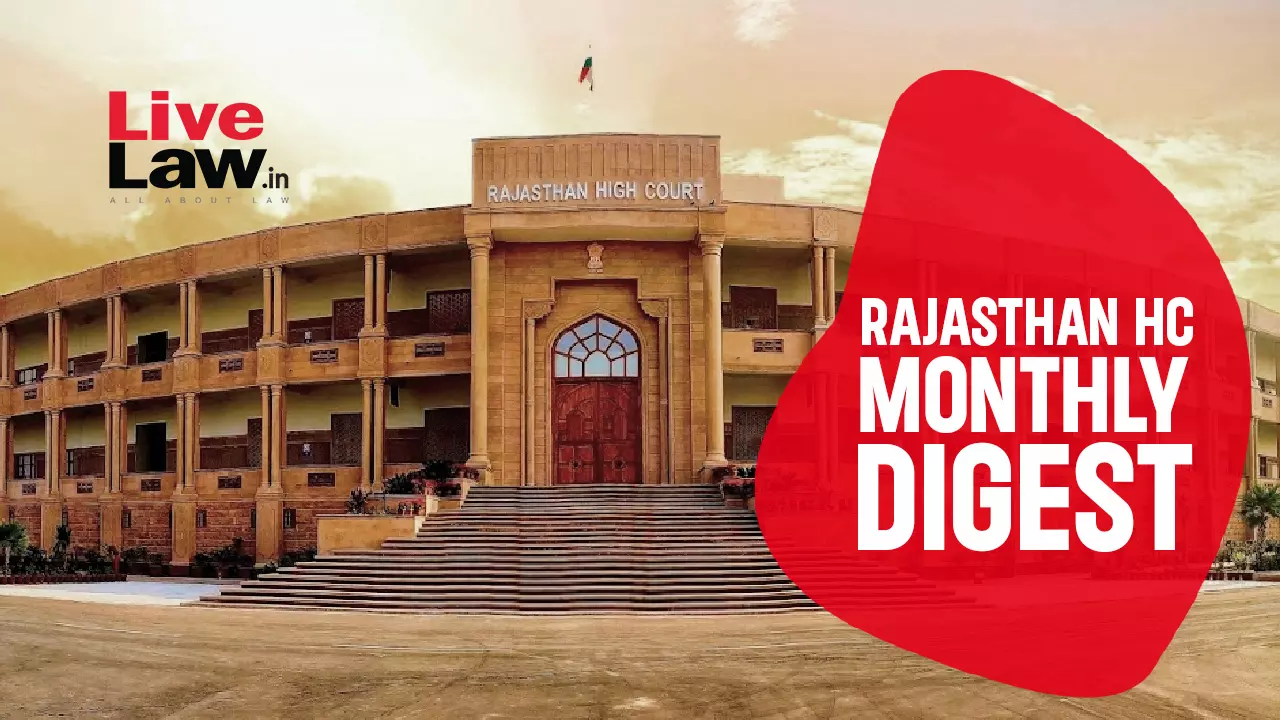- Home
- /
- High Courts
- /
- Rajasthan High Court
- /
- Rajasthan High Court Monthly...
Rajasthan High Court Monthly Digest: November 2024
Nupur Agrawal
14 Dec 2024 12:00 PM IST
Citations: 2024 LiveLaw (Raj) 328 To 2024 LiveLaw (Raj) 377NOMINAL INDEXJakir Khan v State of Rajasthan & Anr. 2024 LiveLaw (Raj) 328Hemlata Choudhary v the State of Rajasthan & Anr. 2024 LiveLaw (Raj) 329Smt. Suman Lata Kapur v the State of Rajasthan & Ors. 2024 LiveLaw (Raj) 330Anju Parihar v Looni Devi 2024 LiveLaw (Raj) 331Umesh Kumar & Anr. v Lila Bai & Anr. 2024...
Next Story



